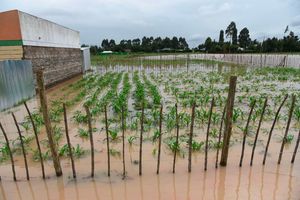Resolve industry woes to bring sugar prices down
Sugar prices have drastically shot up in the past few days to an all-time high of Sh420 for a two-kilogramme packet, throwing consumers into utter confusion. This has been blamed on a cane shortage that has reportedly forced some millers to close their factories.
But the industry has been on its deathbed for years. Several government bailouts for Mumias and Nzoia, both former western Kenya sugar industry kingpins, have not borne fruit. There has been absolutely no sweet news in this sub-sector as the millers struggle to pay salaries and farmers’ sugarcane.
A once-thriving industry, sugarcane growing is now a source of suffering and impoverishment. The vibrant factories that dotted the region have gone silent. A high-profile task force appointed by then-President Uhuru Kenyatta came up with recommendations that have not been fully implemented.
There is speculation that the current crisis may have been sparked by a proposal in the Finance Bill 2023 to introduce a tax on sugar. Kenyans are now paying 32 per cent more for the sweetener than last month. Kenya Association of Manufacturers is accusing traders of manipulating prices. KAM also suspects that some consumers may have rushed to stock up, causing the shortage that has pushed up prices.
Agriculture Cabinet Secretary Mithika Linturi has ruled out privatising the sugar millers despite the numerous challenges the sub-sector faces. He believes that it is possible to usher the ailing industry back to profitability. Sugarcane farming was once a vibrant economic enterprise that accounted for 15 per cent of the country’s agricultural gross domestic product (GDP). However, many factories are today on their knees.
Getting the industry back on its feet calls for some bold measures. The cost of producing sugar in Kenya, which is among the highest on the continent, must be addressed. There is a need to also revamp extension services and offer subsidies, including seeds and fertilisers, to farmers. This will cut production costs and increase harvests.
There is also a need to plant faster-maturing cane varieties and embrace the latest technology and agricultural methods in sugarcane farming. The dumping of cheap imported sugar into the market by rogue millers and their accomplices who repackage and sell it must also be stopped.




